We Need A New Party: If you spend any time thinking about politics in the UK you are likely now to be feeling pretty depressed. We don’t really just need a new party, we need a new system and particularly a new system of voting. First past the post is long past its use-by date.
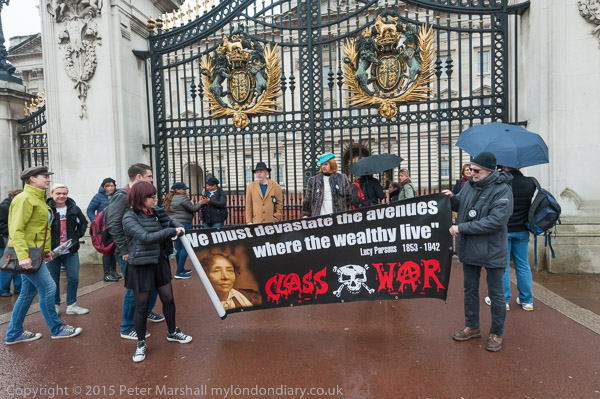
First past the post (FPTP) was designed to give stable government and also to provide a firm bond between the voters in their constituencies and parliament via their MP. But that is a bond which has in many areas been broken by the actions of the two main parties, particularly in the imposition of party candidates against local opinion. But FPTP has also led to the development of a political class whose experience, aims and interests are often very different to those of the people they supposedly represent.
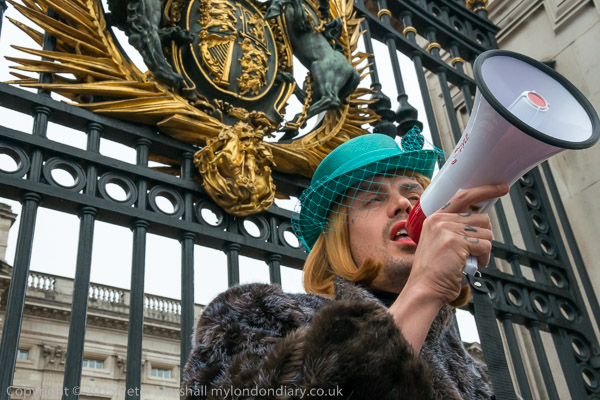
Our geographical constituencies also lead to inequalities in the representation of voters, some simply a matter of the ways that populations have grown up around centres of employment, but also the party influences on the drawing of boundaries.
We’ve also seen, particularly since the 1970s, a central government that has increasingly hobbled the activities of local government, with some disastrous effects, particularly over the provision of social housing. The abolition of the GLC was perhaps the most public expression of Westminster’s disdain. Devolution in recent years has done something to reverse this, though not in the English regions, and the introduction of directly elected mayors has largely been ineffectual (and sometimes poisonous.)
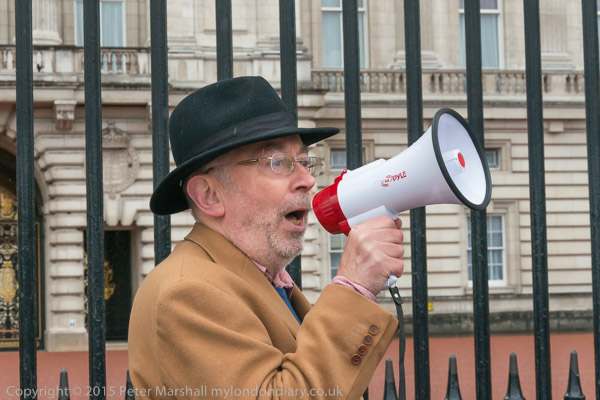
Attempts to form new parties to challenge the rule of Conservative and Labour have been largely unsuccessful, as although the Green Party may have achieved 2.7% of the vote in the 2019 it only ended up with one MP, rather than the 17 an equal election system would have given. There have been many proposals for a better voting system and some which better retain the link between the the elected representative and a local area. But perhaps we need to go further, taking steps that remove the idea of a political class. We should get the continuity of government that we need from a professional and non-political civil service, not from representatives who feel they have a right to continue in office year after year until they become senile.
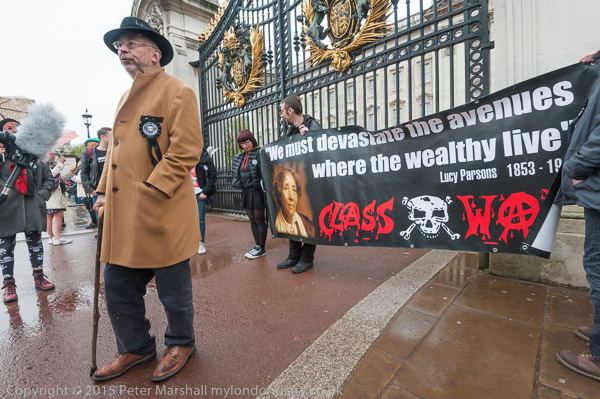
Labour did offer the electorate a choice in both 2017 and 2019 – and came close to winning in 2017, defeated largely by the actions of party officials and right-wing Labour MPs. Since then the party has lost much of its membership income and has moved towards being a party financed by wealthy individuals, losing much of its connections with the grass roots. It seems to be aiming at becoming a Tory clone in order to win back voters who deserted it over Brexit in 2019.
Perhaps a new party will emerge from those Labour grass roots and others on the left for our next election, and there are some areas where it could become popular, particularly if Labour put up candidates in opposition to currently serving left Labour MPs as seems likely. But it seems unlikely to gain the kind of support that would allow it to challenge the system.

Possibly if Labour continue on their current dysfunctional path they will create a new ‘Livingstone moment’ by de-selecting their former leader. It might just shake him out of his life-long dedication to the party enough to stand under a new label, and given his popularity and record as a constituency MP he would almost certainly win. It could be the spark which ignites a new politics nationwide.
A new party won’t of course be Class War, who became a political party for the 2015 general election, standing in seven constituencies. As I wrote, “None expected to get many votes, but it was an opportunity to generate some interest in working class attitudes and issues. And Class War and its candidates and policies certainly attracted far more media attention than the various small left wing groups who stood candidates.”
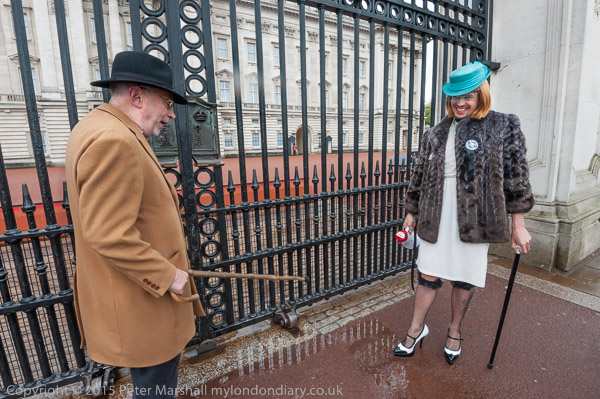
Class War had a manifesto, with six simple points:
- Double Dole,
- Double Pension,
- Double Other Benefits,
- 50% Mansion Tax,
- Abolish the Monarchy,
- Abolish all Public Schools.
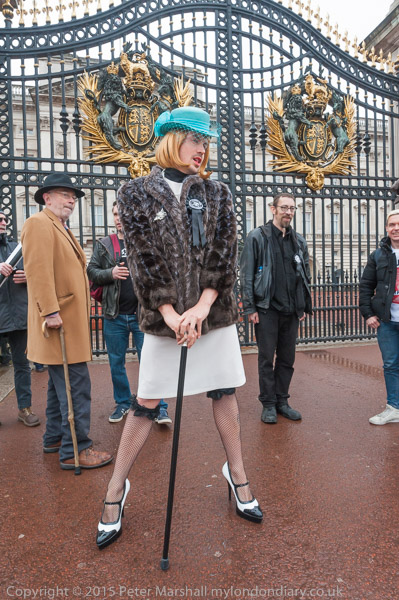
UK benefits are mean, and state pensions probably the lowest in Europe, so calling for massive rises makes a lot of sense. And if you want to tackle the class system in the UK then abolishing the monarchy and public schools is certainly a good start. The mansion tax may seem a little excessive, but what we really need is a land tax, though perhaps at a rather lower level. But somehow that didn’t come to mind when the manifesto was being written on the short walk from the pub to a Poor Doors protest.
Class War – and others including the Monster Raving Loony Party, Count Binface and Lord Buckethead – at least make our general elections more interesting, adding a little fun. And I sometimes think they would have made a better job – as Lord Buckethead claimed – at negotiating Brexit than Theresa May and particularly than Boris Johnson.
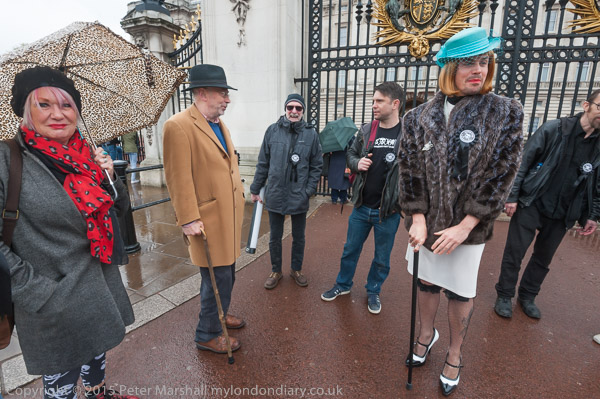
The manifesto launch took place at Buckingham Palace, where Westminster candidate Adam Clifford was refused entry to canvas the 31 voters registered there, and was filmed by a team from BBC News although I don’t know if any of it was ever broadcast. The event ended when police began to take rather too much interest in what was taking place.
More pictures at Buck Palace Class War Manifesto Launch.